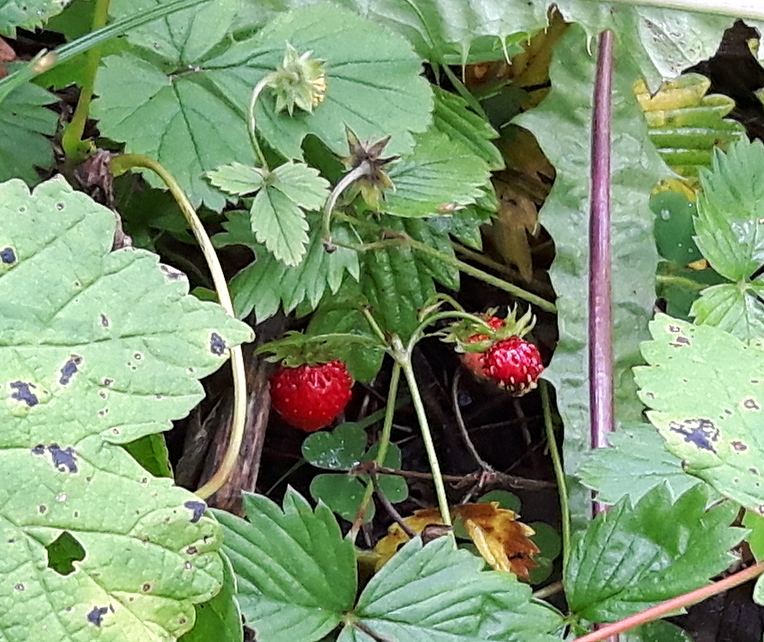 If you’re an avid researcher into clear skin, radiant skin, and youthful and healthy skin then you’ll surely know about collagen.
If you’re an avid researcher into clear skin, radiant skin, and youthful and healthy skin then you’ll surely know about collagen.
You’ll surely know about various collagen creams, collagen supplements, and of course, vitamin C. The basics of collagen formation come from diet and nutrition. For normal, acne-friendly levels, this is easily sufficient…
…but to take your collagen activity to the next level, a realm to which few ever ascend, a select group of elite natural topical treatments are the secret.
The human body doesn’t need these topical treatments; it’s designed to manufacture collagen using vitamin C, proline, lysine and glycine. Yet for some reason, a spiky plant from the desert, the oil of an Indonesian tree nut, and a spice from India can all increase collagen. Antioxidant powers are mostly predictable, but surprising collagen-boosting properties are being discovered everywhere. They tend to be the most random and interesting powers of all.
Firstly, type 1 and type 3 collagen can increase in wounds while they are being healed. This accelerates the healing of existing acne and reduces total acne at any given time, and prevents acne scars from forming. Secondly, collagen proteins can increase on your skin regardless of any wounds, meaning that your skin looks younger and tighter.
In both cases, your skin will look more attractive overall, and many subtle factors will combine and click to give you the glowing tone everyone desires.
Here are some of the strongest, yet most hidden, natural collagen boosters:
Tamanu oil

…but this study revealed strong collagen-boosting benefits. Scientists tested cold pressed tamanu oil on human skin cell samples, analysing wound healing factors including collagen synthesis, glycosaminoglycans, and wound closure.
After 4 hours, collagen levels in skin tissue increased by 10% to 23%. After 24 hours, the increase was 40%. Tamanu oil was found to increase the genetic activation of cells which manufacture collagen, human dermal fibroplasts, as well as other genes connected to collagen.
An acceleration of overall wound healing was also observed. Tamanu oil was slightly more effective than vitamin C, closing the wound in 14 hours compared to 15. The scientists judged that there were no conflicting factors and that the tamanu oil was indeed responsible.
How does tamanu oil stimulate collagen? Nobody knows, but tamanu oil contains unique neoflavanoid compounds such as calophyllolides, tamanolides, and inophyllums. Tamanu oil has a unique resinous section which other oils lack, along with its fats, making it especially rich in bioactive compounds. Scientists believe that one of these is responsible.
Polynesians most likely spend their whole day laughing at us thanks to an oil like this.
Other benefits for acne – tamanu oil from trees growing in Indonesia, Tahiti, Fiji, and New Caledonia have all been tested against p.acnes bacteria and found to inhibit it strongly. Tamanu oil is also an excellent acne-friendly moisturiser since its fat profile is optimal.
Aloe vera
This gel or sap, derived from the aloe vera plant growing in deserts, is already a popular topical treatment. It’s mainly recommended as an anti-inflammatory acne remedy, but aloe vera also contains a growth hormone called gibberellin. This plant hormone helps aloe vera to survive through stem elongation, flowering, and shuttling nutrients around the leaves…
…and these effects can translate almost identically onto human skin. You won’t start growing leaves and branches, but your skin proteins including collagen will multiply.
Gibberellin interacts with growth receptors in the skin and increases its collagen output. Most importantly, aloe vera itself has a mountain of evidence behind it. This study and this study found that applying aloe vera to rat skin increased levels of collagen as well as collagen cross-linking. The collagen grew tougher in addition to more concentrated. An aloe vera compound called mannose-6-phosphate was discovered to be responsible.
This study fed Japanese women aloe vera and observed increased collagen in their skin, which is cool in itself, but for topical purposes the first experiment was superior: skin cells exposed to aloe vera become two times more concentrated in collagen than usual. Like tamanu oil, the genes responsible for collagen synthesis were more active.
Aloe vera is one of the best supported natural collagen boosters.
Other benefits for acne – strongly anti-inflammatory, due to compounds like lutein, giberellin, aloe-emodin, and many antioxidants.
Lavender oil
 A controversial acne treatment which is much safer than its enemies suggest. Lavender oil is claimed to be cytotoxic, photosensitising, and even estrogenic. The reality is that a bunch of studies were misinterpreted and lavender oil is only dangerous at very high doses.
A controversial acne treatment which is much safer than its enemies suggest. Lavender oil is claimed to be cytotoxic, photosensitising, and even estrogenic. The reality is that a bunch of studies were misinterpreted and lavender oil is only dangerous at very high doses.
There are some strong dangers, however – dangers towards tired skin, weak skin, and dull skin.
For lavender essential oil can upregulate a skin gene called protein-transforming factor beta, a protein which controls collagen, among other wound healing factors. This study revealed that lavender increased levels of both type 1 and type 3 collagen in human skin after 4 days.
Total wound closure and total wound area both improved significantly after 4 days. In your case, total pimple healing and total pimple size will improve.
Read Annihilate Your Acne – get the greatest diet ever for clear and radiant skin
Are you someone who loves skincare experiments, who loves to combine both essential oils and fat based oils, mixing them in with other ingredients like honey or aloe vera? For collagen, lavender oil should be your essential oil of choice.
Other benefits for acne – one of the better essential oils for antibacterial properties against p.acnes. Lavender oil is inferior to lemongrass and peppermint, but more antibacterial than juniper berry and equal to tea tree oil.
Cinnamon
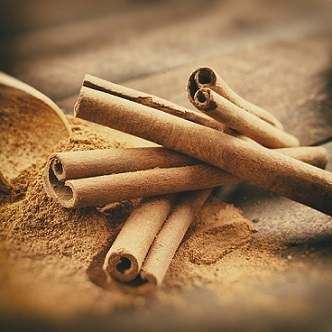 The most unexpected collagen boosting secret was revealed in a 2012 study. Applying cinnamon topically was found to increase collagen biosynthesis in the surrounding skin cells. Levels of type 1 collagen, the type used to connect and strengthen skin cells, were increased. It was thus deemed that “cinnamon extract is useful in antiaging treatment of skin“.
The most unexpected collagen boosting secret was revealed in a 2012 study. Applying cinnamon topically was found to increase collagen biosynthesis in the surrounding skin cells. Levels of type 1 collagen, the type used to connect and strengthen skin cells, were increased. It was thus deemed that “cinnamon extract is useful in antiaging treatment of skin“.
Where did the benefits come from? It turns out that the signature compound of cinnamon bark, cinnamaldehyde, can stimulate the activity of insulin-like growth factor 1. This is a highly useful growth hormone in humans; it’s found in milk and is part of the reason why dairy is a nightmare for some. It’s required for skin cell and muscle growth though, and one role is in stimulating collagen production.
What we are talking about here is local IGF-1 enhancement, not systematic. Its activity is increased at the skin’s surface where it increases collagen, not systematically where it increases oily skin. This is a very different pathway to aloe vera or tamanu oil, meaning that cinnamon can be combined with one of them for an ultimate remedy.
Cinnamaldehyde is the main flavoursome compound in cinnamon, so essentially, if cinnamon lacks collagen boosting properties, it isn’t truly cinnamon at all. Taste your cinnamon and you’ll know that the secret to youthful skin is in your palm right now.
Other benefits for acne – a very simple benefit. Cinnamon is extremely rich in antioxidants, and when combined with a carrier oil (like tamanu oil), they will penetrate your skin’s layers and protect it from acne. Cinnamaldehyde is also active against the malassezia yeast which causes pityrosporum folliculitis.
Shea butter
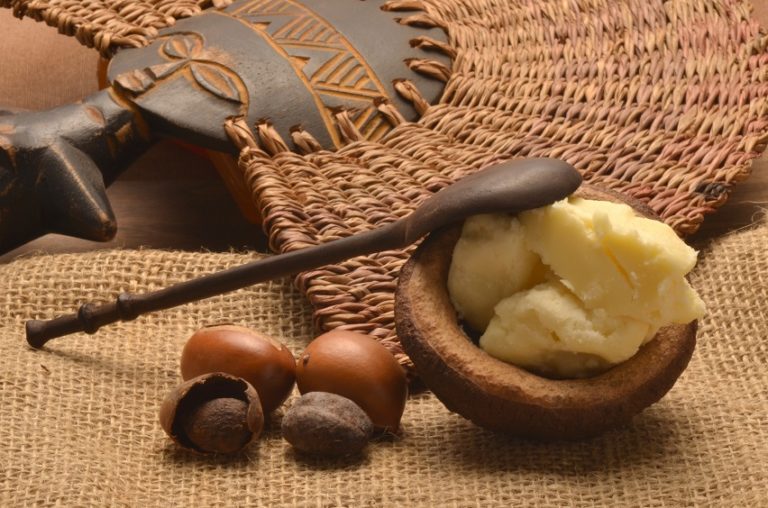 Beloved by Africans as a moisturiser for centuries, even featuring in wedding rituals in Ghana where people whip each other. Beloved by people in the West as a moisturiser nowadays too, but shea butter has never attracted attention for increasing collagen, until now.
Beloved by Africans as a moisturiser for centuries, even featuring in wedding rituals in Ghana where people whip each other. Beloved by people in the West as a moisturiser nowadays too, but shea butter has never attracted attention for increasing collagen, until now.
This fat of the shea nut from Africa is able to preserve collagen on your skin’s surface using another mechanism which is different to what we’ve already covered. Shea butter contains two compounds called a-amyrin and lupeol, which inhibit the amount of collagenase enzymes being churned out by fibroblasts. This enzyme has an appropriate name – it lives to break down existing collagen proteins.
Ordinarily, this is beneficial, since collagen needs to be recycled and replaced with new collagen; hence the old saying that your entire skin replaces itself every two months. Too much collagenase, however, will cause weak protein-deprived skin, and shea butter can prevent this.
Next: the 6 vitamins and minerals which can massively reduce acne
One study confirmed the power, with 47 humans rubbing shea butter into their skin twice daily. Substantial increases in collagen levels were observed. Another study on 30 human volunteers also detected an increase. Both studies observed all the great benefits you would associate with collagen accumulation – thicker skin and reduced wrinkles.
Shea butter is one of the best natural moisturisers for a collagen fanatic to use.
Other benefits for acne – said confirmed moisturising properties, with an excellent fat profile that carries no risk of inflammation.
Turmeric
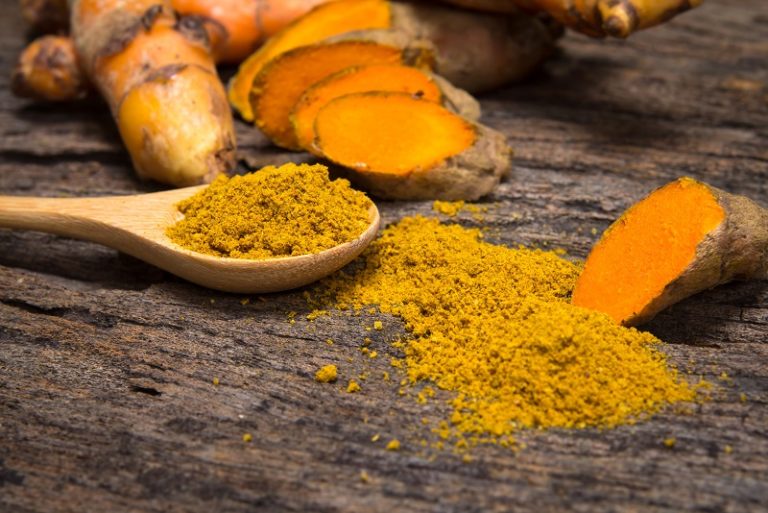 It sometimes seems like turmeric can accomplish almost everything for acne. Eating it can reduce inflammation more powerful than almost any other food, and it’s riddled with antioxidants. Topically, it’s able to reduce oily skin, possibly because of its beta-sitosterol and stigmasterol…
It sometimes seems like turmeric can accomplish almost everything for acne. Eating it can reduce inflammation more powerful than almost any other food, and it’s riddled with antioxidants. Topically, it’s able to reduce oily skin, possibly because of its beta-sitosterol and stigmasterol…
…and like cinnamon, topical turmeric can optimise your collagen output. Turmeric itself has no studies to its name, but its signature compound curcumin has many.
In this study, scientists incised several wounds into the skin of rats and analysed their healing progress at 4, 8 and 12 days. The rats were treated with either curcumin or a control. Applying curcumin topically increased collagen synthesis in the wound sites at each time mark, with type 3 collagen and total protein increasing.
Better yet, the new collagen was even more stable and acid resistant, with superior cross linking and strength. Overall wound healing and contraction was swifter in the curcumin group. The conclusion was that the results “clearly substantiate the beneficial effects of the topical application of curcumin in the acceleration of wound healing”, a conclusion that applies to the good old orange turmeric spice as well.
Meanwhile, this study found that a combination of curcumin and ginger extract accelerate collagen accumulation. This study was seriously interesting, as it found that upon interaction with curcumin, collagen proteins grow more viscous and gain thermal stability, with the temperature at which shrinking occurred increasing from 60c to 90c.
The evidence of curcumin and hence its home, turmeric, reducing collagen is extremely strong.
Other benefits for acne – an oily skin secret. Turmeric was found to reduce sebum production by 24.76% after 6 weeks of daily application.
Vitamin C
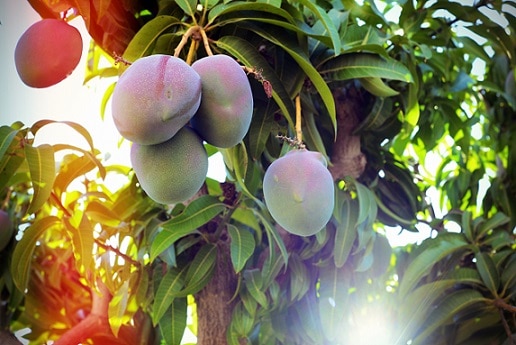 You cannot beat basic vitamin C for collagen. Well actually, you can beat vitamin C, but only just: this basic collagen-booster should not be underestimated.
You cannot beat basic vitamin C for collagen. Well actually, you can beat vitamin C, but only just: this basic collagen-booster should not be underestimated.
In the body, vitamin C is vital since it’s one of the main co-factors. It’s not an ingredient of collagen itself, but vitamin C regulates the degradation and reconstruction of glycine, lysine, and proline, the amino acids that do form collagen. The evidence is strong that applying vitamin C to the skin topically causes a strong increase in collagen levels, which you can read about in this study, this study, and this study.
What’s less known is whether topical vitamin C will work wonders if your dietary intake is already high. The odds are high that it will, because dietary vitamin C disperses throughout your body, whereas topically, it’s concentrated in the face.
How do you apply vitamin C? There’s multiple avenues, the first of which is buying a natural vitamin C powder. Topically, it doesn’t have to be 100% organic and natural vitamin C, since pure ascorbic acid is known to improve collagen excellently.
However, food derived choices are also excellent, the best being camu camu powder, the powder of the camu camu berry from Peru which I also recommend as a supplement. A similar natural substance is acerola berry powder, derived from another vitamin C-rich berry.
The 7 greatest topical treatments for naturally clear skin
Finally, you have the world of fruits and vegetables. Juicing some strawberries, raspberries, or high vitamin C green vegetables and combining them with an oil like tamanu oil for penetration is an experimental natural strategy. If applying vitamin C is your sole intention, the first two options are preferable, combined with a carrier oil once more.
Other benefits for acne – vitamin C is the most abundant water soluble antioxidant in humans, and like vitamin A and E, is part of your natural sunlight defences.
Royal jelly
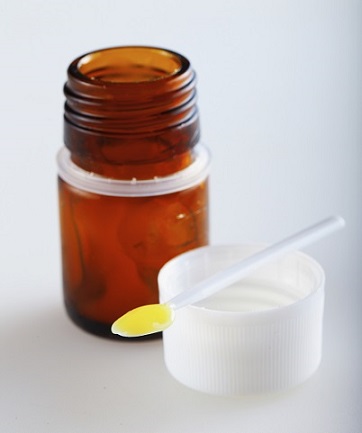 Royal jelly is like the bee kingdom equivalent of anabolic steroids. It’s secreted by worker bees to feed to a lone female bee, a bee which receives the honour of becoming the queen of the hive. The royal jelly is so nutritious that this bee becomes 5 times as large as a normal bee, lives for 5 years instead of 5 weeks, and gives birth to the future of the hive.
Royal jelly is like the bee kingdom equivalent of anabolic steroids. It’s secreted by worker bees to feed to a lone female bee, a bee which receives the honour of becoming the queen of the hive. The royal jelly is so nutritious that this bee becomes 5 times as large as a normal bee, lives for 5 years instead of 5 weeks, and gives birth to the future of the hive.
Royal jelly is thus a highly complex substance and luckily for us, it’s able to increase collagen levels according to numerous studies. This study found that royal jelly increased pro-collagen type 1, which is the precursor to collagen in the skin.
It also increased transforming growth factor 1, a protein which controls cell proliferation and both collagen type 1 and type 3. Type 1 collagen is the standard structural collagen which strengthens all skin. Type 3 is more active in the early stages of wound healing and much of it later converts to type 1 collagen. Meanwhile, type 2 collagen is located far away in your joint cartilage.
Interestingly, the royal jelly study found that because of the collagen increase, skin samples became more resistant to UV radiation. The substance is also confirmed: a fatty acid called 10-hydroxy-2-decenoic acid, AKA queen bee acid, which royal jelly contains in 0.2% concentrations. Interestingly, queen bee acid is being investigated for cognitive benefits too.
Other benefits for acne – powerful antibacterial benefits, due to compounds which keep this vital food supply for the bee colony well preserved and fresh.
Avocado oil
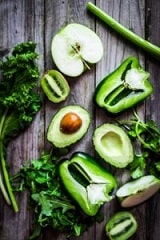 Avocado is rampantly popular today, so much so that prices are soaring, but one possible secret that its fans don’t realise is its secret anti-ageing properties.
Avocado is rampantly popular today, so much so that prices are soaring, but one possible secret that its fans don’t realise is its secret anti-ageing properties.
They were revealed 4 years ago, in this study on rats where avocado promoted higher synthesis of collagen and greater density of collagen. Another study from 26 years ago found that feeding avocado oil to rats increased in higher soluble collagen content in the skin.
Avocado has another fresh and interesting mechanism, assuming that the old study was accurate: inhibition of lysyl oxidase. The amino acid lysine forms a percentage of collagen itself, but much is converted to a structural protein in collagen called hydroxylysine. Lysyl oxidase acts like collagenase, breaking down hydroxylysine as it weakens and needs replacing. Avocado oil was found in the study above to decrease lysyl oxidase activity.
The downside of these studies? The older one relied on oral avocado oil, not topical. The effects inside the body could be drastically different, but in this instance, it’s likely that applying avocado oil topically will inhibit lysyl oxidase as well. We know from shea butter that topical treatments can inhibit collagenase.
The much bigger problem with avocado oil is its fat profile. Specifically, the fact that it consists of 62% oleic acid, a monounsaturated fat (omega 9) which in high doses, disrupts the human skin barrier and irritates the skin itself. Avocado oil contains less oleic acid than olive oil, at 70%, but 62% is easily enough to unleash mayhem when undiluted.
Vitamin D – the greatest nutrient for a bright and glowing skin tone
Which brings us to your strategy. Avocado oil is by far the riskiest collagen booster listed here, yet its rewards are potentially huge. That’s why you have to be smart and either observe your skin closely, or mix it with another oil to dilute the oleic acid. Ideally, you would choose one with very little oleic acid such as grapeseed oil or high-linoleic sunflower oil.
Overall, avocado oil is the weakest treatment outlined here in terms of evidence, but it could prove rewarding.
Other benefits for acne – proven to inhibit free radical activity effectively.
Conclusion
If you’re an anti-ageing fanatic or eternal life fan, or simply want stronger skin against acne from collagen, you now have multiple options.
Out of these 9 choices, lavender oil and avocado oil are slightly weaker than the others. Both have less evidence of collagen enhancement, while avocado has the nevertheless easily avoided side effects. All of the treatments here are at least promising.
Your next step is the recipes. Using tamanu oil or shea butter alone will work excellently, but you can combine products for ultimate enhancement. For example, shea butter inhibits collagenase, while cinnamon increases IGF-1. Turmeric could also act via a different mechanism, and given curcumin’s interaction with the proteins, it looks that way.
If you get creative, and intelligently so, you could honestly gain the youngest looking skin in your city, the clearest skin in your neighbourhood, or the most glowing and attractive skin tone in the whole world.
NEXT: the ultimate diet for clearing acne permanently
Thanks for reading!

Thank you for this write up! Now I need to take some cucurmina supplements and find a way to combine tamanu with aloe Vera
Any information for help with pitted indented scars?
How do you think about tretinoin cream and retinol cream? it’s a top known anti-aging and collagen-generating ingredient, but I’ve never seen you say it on this site.